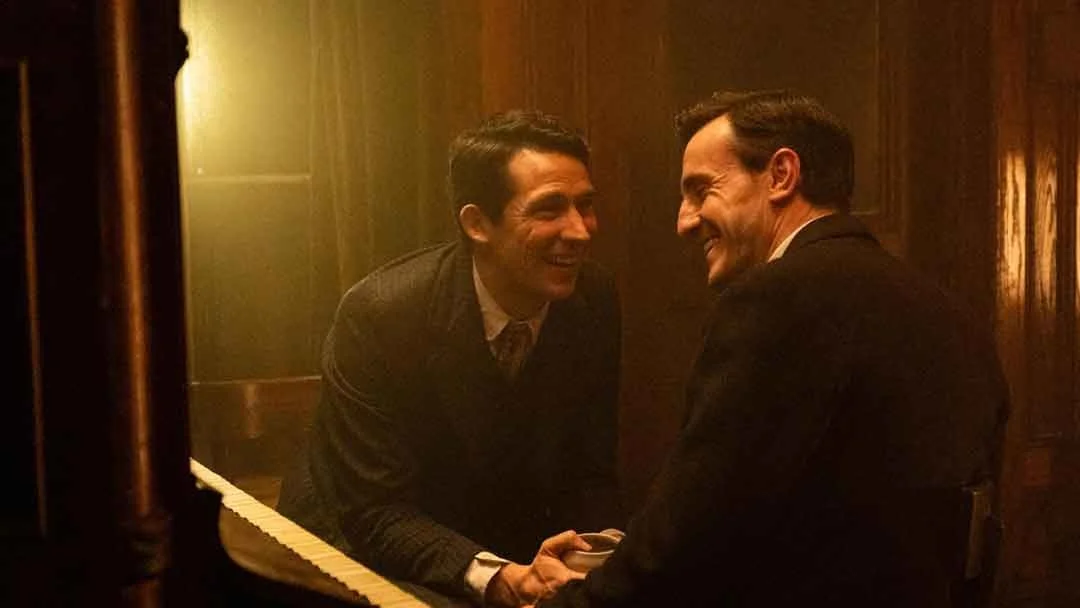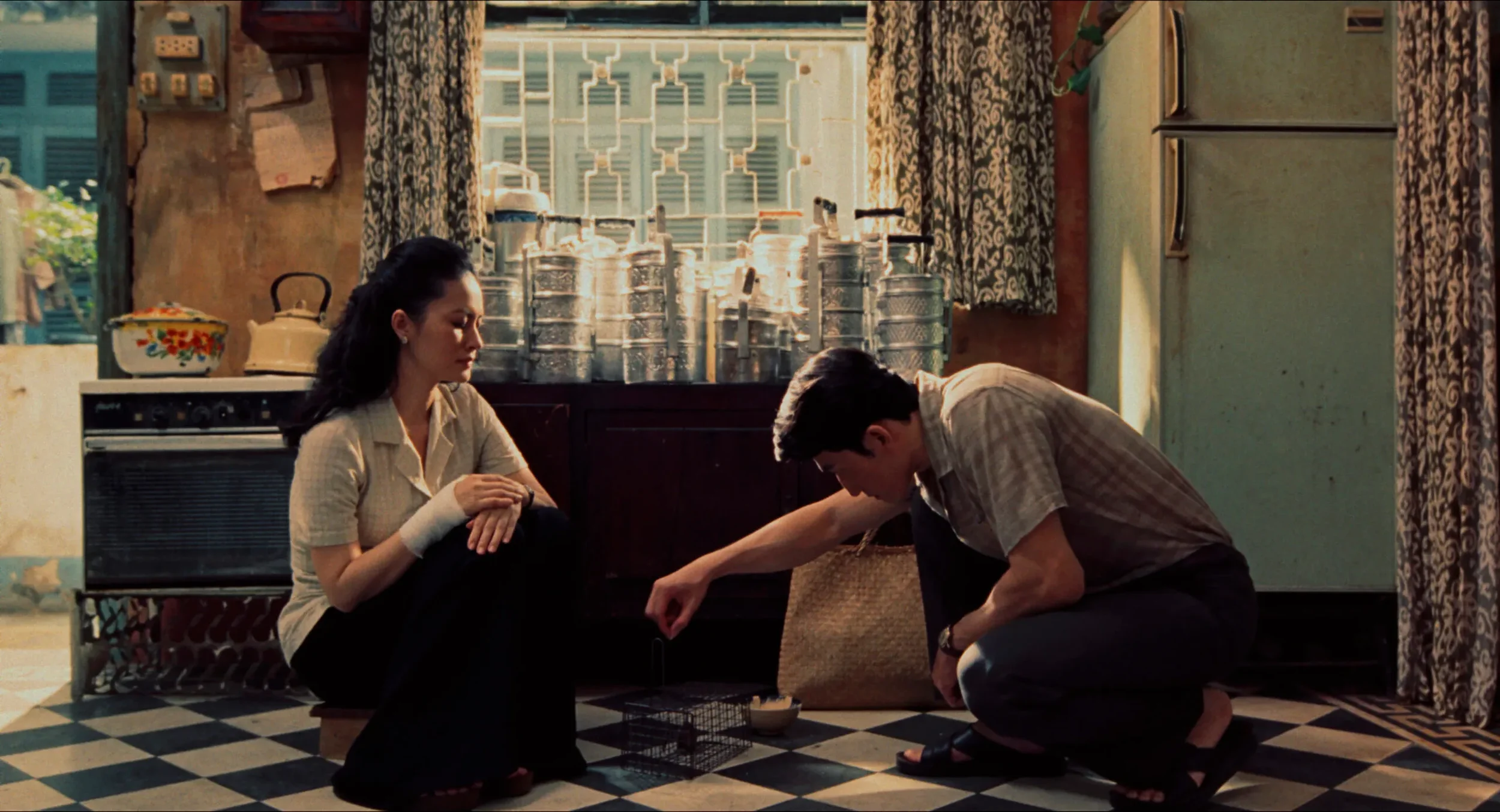‘The Watchers’ REVIEW: Like father, like daughter: cool premise, subpar execution
‘The Watchers’ REVIEW: Like father, like daughter: cool premise, subpar execution
From left to right—Oliver Finnegan, Olwen Fouéré, Dakota Fanning and Georgina Campbell in The Watchers || Image courtesy of 2024 Warner Bros. Entertainment Inc
There’s a handful of compelling ideas that can make for a good movie in The Watchers, but with this being the feature-length debut of director Ishana Night Shyamalan, those ideas are squandered.
Adapted from A.M. Shine's novel of the same name, The Watchers follows Mina (played by Dakota Fanning), a young American woman who emigrated in Ireland as an attempt to detach herself from her tragic past. Working full-time in a pet store, she is ultimately tasked to deliver a prized parrot (who she later nicknames as Darwin) somewhere deep in the Irish countryside.
Once Mina enters the woods, the electronics start to go nuts; her car breaks down. And after briefly exploring off-road on foot in search for help, she is unable to find her way back to the dirt road as if her car and the entire path she had taken a while back dissipated in the mist, and trees grew out of them.
More bizarre and ominous events follow: the earth shakes; a flock of crows fly past Mina; a steel door of a dark concrete building appears a hundred meters away; and an elderly woman (Olwen Fouéré) calls out for Mina from the door; and upon running inside with Darwin’s birdcage at hand, she finds herself in a one-room concrete bunker with two more strangers. A massive mirrored window occupies one side of the room entirely.
The elderly woman, Madeline, explains that the Watchers come out at night just to watch them through the window. Why, you may ask? Well, they haven’t got a clue either. No one in the bunker has seen a Watcher nor lives long enough to tell a tale about them. All they know are the sounds that they make outside, a set of rules to appease them and that the forest is endless and impossible to get out of.
From left to right—Georgina Campbell, Dakota Fanning, Oliver Finnegan, and Olwen Fouéré in The Watchers || Still taken from the film’s official trailer on YouTube
Now The Watchers has the right ingredients by design: four people with hidden backgrounds are trapped in a never-ending forest. Their only safe haven is a mysterious concrete bunker with a one-way mirrored window on the side. At night, they lock themselves inside the bunkers as unknown malevolent forces watch them through the window. From an exploration of trauma and guilt, to an extensive dive in Irish folklore, The Watchers has loads to unpack and show tons of promise.
However, like the late filmography of her father and producer M. Night, Ishana Night Shyamalan pens such exposition-heavy and clunky dialogue that the film gradually gets more tiring with each succeeding explanation of its mysteries. She also bears the first-time writer's disease of having her characters express their inner thoughts and hidden backstories in unnatural means.
For example, throughout the film, Shyamalan establishes the protagonist's internal conflict by having Mina blatantly talk to Darwin the parrot about what's rummaging in her mind. The intent is frustratingly obvious, the dialogue too heavy-handed. And as a result, Fanning fails to embody her character's melancholic stoicism and comes off as stilted and flat.
From left to right—Olwen Fouéré, Georgina Campbell and Oliver Finnegan in The Watchers || Still taken from the film’s official trailer on YouTube
Another example is Fouéré's character, Madeline, who serves as the matriarch of the surviving quartet and appears to know more about the Watchers than she lets on. The latter part turns out to be true as the film makes it apparent that she exists to be a walking exposition dumper in the story. She keeps explaining and emphasizing the rules of living with the Watchers.
She even goes out to explain in excessive monologues just to answer the film’s most lingering questions in the most climactic moments. Fouéré’s stony voice tries what she can to make the countless folklore lessons sound more engaging to the audiences, but when explaining is all that she does in the film, it makes both of her performance and character one-note.
Madeline being one-note further proves to be fatal, because the character becomes more crucial by a sharp left turn in the third act. The climax is basically a declaration of the film's central thesis that ties in the film’s supernatural elements with the guilt, trauma and bitterness that our characters are dealing with and trying to overcome. But with underdeveloped characters and mediocre mythology-building, the outcome feels didactic and labored instead of being emotionally potent.
I don’t want to reveal the film's secrets, including a typical Shyamalan plot twist — a trademark that Ishana has carried over from his father. And even if you, the reader, don't care about spoilers for a middle-of-the-road film, I would say this as a reviewer: despite its many flaws, I still enjoyed watching The Watchers because I found myself intrigued with its surprises.
Now, the film is honestly more in line with the dark fantasy genre than a traditional American horror flick. The film is more ominous and atmospheric, or at least tries to be in those aspects. It’s not effectively scary per se, but the main appeal is the exploration of the film’s folklore. The story goes in some interesting and unexpected places including an ending that can make it or break it for audiences. And although the final outcome is not entirely successful, I see potential in the ideas, even when the young Shyamalan fails to realize them.
If the film was helmed by a much more experienced filmmaker with a strong affinity to the ambitious dark fairy tale concepts at play and an empathy towards those who we perceive as monsters, then The Watchers could have been a home run (I'm looking at you, Guillermo Del Toro). And while Ishana Night Shyamalan shows an eye for eerie atmosphere, her exposition-heavy, haphazard storytelling is a cinematic equivalent to waterboarding that dilutes any attempt to thrill and reach the heart of audiences.











